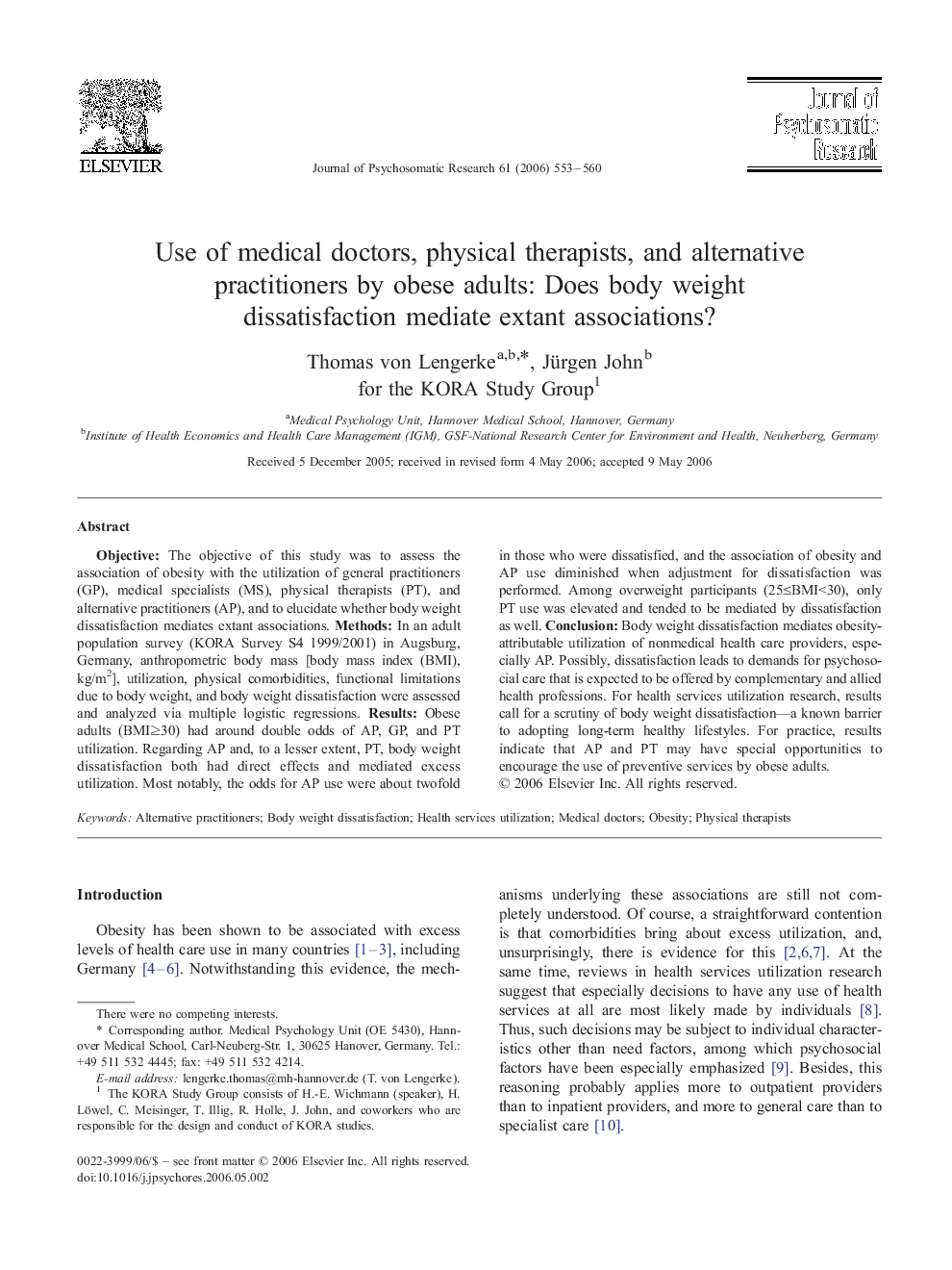| Article ID | Journal | Published Year | Pages | File Type |
|---|---|---|---|---|
| 950618 | Journal of Psychosomatic Research | 2006 | 8 Pages |
ObjectiveThe objective of this study was to assess the association of obesity with the utilization of general practitioners (GP), medical specialists (MS), physical therapists (PT), and alternative practitioners (AP), and to elucidate whether body weight dissatisfaction mediates extant associations.MethodsIn an adult population survey (KORA Survey S4 1999/2001) in Augsburg, Germany, anthropometric body mass [body mass index (BMI), kg/m2], utilization, physical comorbidities, functional limitations due to body weight, and body weight dissatisfaction were assessed and analyzed via multiple logistic regressions.ResultsObese adults (BMI≥30) had around double odds of AP, GP, and PT utilization. Regarding AP and, to a lesser extent, PT, body weight dissatisfaction both had direct effects and mediated excess utilization. Most notably, the odds for AP use were about twofold in those who were dissatisfied, and the association of obesity and AP use diminished when adjustment for dissatisfaction was performed. Among overweight participants (25≤BMI<30), only PT use was elevated and tended to be mediated by dissatisfaction as well.ConclusionBody weight dissatisfaction mediates obesity-attributable utilization of nonmedical health care providers, especially AP. Possibly, dissatisfaction leads to demands for psychosocial care that is expected to be offered by complementary and allied health professions. For health services utilization research, results call for a scrutiny of body weight dissatisfaction—a known barrier to adopting long-term healthy lifestyles. For practice, results indicate that AP and PT may have special opportunities to encourage the use of preventive services by obese adults.
